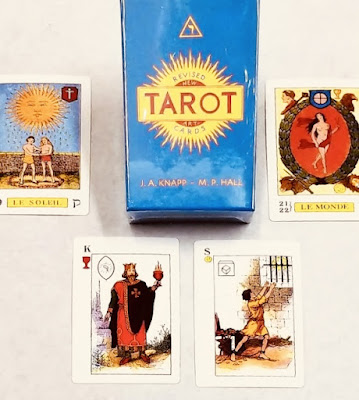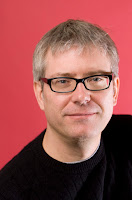 |
Magpie file photo Remnants of Albert Pike’s chess set are displayed in the House of the Temple. They look to predate the standardization of chess pieces in the nineteenth century by chess master Howard Staunton. |
Of course every day is a chess day, but today is International Chess Day. Have a great, or Magnus, day!
The closing paragraph of the “An Analysis of the Tarot Cards” chapter in Manly Palmer Hall’s The Secret Teachings of All Ages (Page CXXXII) reads:
In its symbolism chess is the most significant of all games. It has been called “the royal game”—the pastime of kings. Like the Tarot cards, the chessmen represent the elements of life and philosophy. The game was played in India and China long before its introduction into Europe. East Indian princes were wont to sit on the balconies of their palaces and play chess with living men standing upon a checkerboard pavement of black and white marble in the courtyard below. It is popularly believed that the Egyptian Pharaohs played chess, but an examination of their sculpture and illuminations has led to the conclusion that the Egyptian game was a form of draughts. In China, chessmen are often carved to represent warring dynasties, as the Manchu and the Ming. The chessboard consists of 64 squares alternately black and white and symbolizes the floor of the House of the Mysteries. Upon this field of existence or thought move a number of strangely carved figures, each according to fixed law. The white king is Ormuzd; the black king, Ahriman; and upon the plains of Cosmos the great war between Light and Darkness is fought through all the ages. Of the philosophical constitution of man, the kings represent the spirit; the queens the mind; the bishops the emotions; the knights the vitality; the castles, or rooks, the physical body. The pieces upon the king’s side are positive; those upon the queen’s side, negative. The pawns are sensory impulses and perceptive faculties—the eight parts of the soul. The white king and his suite symbolize the Self and its vehicles; the black king and his retinue, the not-self—the false Ego and its legion. The game of chess thus sets forth the eternal struggle of each part of man’s compound nature against the shadow of itself. The nature of each of the chessmen is revealed by the way in which it moves; geometry is the key to their interpretation. For example: The castle (the body) moves on the square; the bishop (the emotions) moves on the slant; the king, being the spirit, cannot become captured, but loses the battle when so surrounded that it cannot escape.
If I win the lottery, I’m going to open a chess retail and playing parlor on Thompson, between West Third and Bleecker, and name it The Pawn Shop. In the meantime, “Make Evans Great Again!”
THIS JUST IN: Grand Master Magnus Carlsen announced on his podcast today that he will not compete next year to defend his world championship, which he has held since 2013. While not retiring from chess, he says he has no motivation to continue playing at the FIDE top stratum. The end of an era.























































































